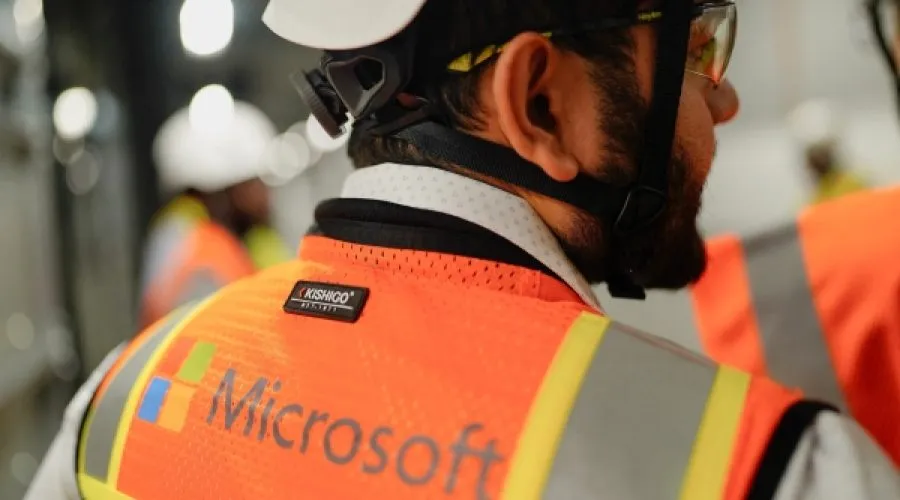زيادة رسوم تأشيرة H-1B: ما يعنيه ذلك لشركات التكنولوجيا ومستثمري السوق
لقد أثار قرار الإدارة الأميركية الأخير بزيادة رسوم تأشيرة H-1B إلى $100,000 جدلاً كبيراً في مختلف القطاعات الاقتصادية والمالية، مما يشير إلى تحول كبير في سياسة الهجرة التي اعتمدت عليها الشركات الأميركية منذ فترة طويلة لجذب المواهب العالمية والحفاظ على ميزتها التنافسية.
تُعدّ تأشيرة H-1B قناةً أساسيةً لجلب الخبرات التقنية رفيعة المستوى إلى الولايات المتحدة. ومع ذلك، من المتوقع أن تُشكّل الزيادة الكبيرة في الرسوم ضغطًا كبيرًا على الشركات، وخاصةً في قطاع التكنولوجيا، مما يُثير مخاوف بشأن قدرة السوق الأمريكية على الحفاظ على جاذبيتها للمواهب الدولية في ظلّ بيئة عالمية تشهد منافسةً متزايدة، وفقًا لمهند ياقوت، كبير محللي الأسواق في سكوب ماركتس.
كانت شركات التكنولوجيا الأمريكية الرائدة، مثل أمازون ومايكروسوفت وجوجل، من أبرز المستفيدين من برامج الهجرة المهنية هذه، حيث اعتمدت بشكل كبير على المهندسين والمطورين الأجانب لسد الثغرات في القوى العاملة المحلية. ستؤدي الزيادة الحادة في تكاليف التأشيرات إلى مضاعفة تكاليف التوظيف، وستجبر الشركات على إعادة النظر في استراتيجياتها المتعلقة بالموارد البشرية. قد يشمل ذلك تقليل عدد المتقدمين أو زيادة الاعتماد على مراكز التطوير الخارجية في آسيا وأوروبا الشرقية. قد تُبطئ هذه التغييرات الابتكار وتُؤخر طرح منتجات جديدة في مجالات حيوية مثل الذكاء الاصطناعي والحوسبة السحابية، مما يُضعف قدرة هذه الشركات على الحفاظ على تنافسيتها، وقد يُسبب ضغطًا هبوطيًا على أسعار أسهمها.
تتجاوز العواقب السوق الأمريكية، لتؤثر على الأسواق العالمية أيضًا. فقد انخفضت أسهم شركات تكنولوجيا المعلومات الهندية بشكل حاد عقب الإعلان، مما يعكس اعتمادها على إرسال موظفيها إلى الولايات المتحدة. علاوة على ذلك، قد يدفع ارتفاع رسوم التأشيرات المهنيين المهرة إلى وجهات بديلة مثل كندا وأوروبا، حيث سياسات الهجرة أكثر مرونةً وتكلفةً. وقد يمنح هذا التوجه تلك المناطق ميزة تنافسية في جذب أفضل المواهب.
وعلى المدى الطويل، يهدد هذا التغيير في السياسة بإعادة تشكيل مشهد الابتكار العالمي وتقليص مكانة الولايات المتحدة الراسخة باعتبارها المركز الرئيسي للتكنولوجيا المتقدمة ــ ما لم يتم اعتماد تدابير هجرة أكثر توازناً تدعم الاحتياجات الاقتصادية دون المساس بالقدرة التنافسية.
تحليل خاص من عمانت | تصفح سوق عُمان
تشير الزيادة في رسوم تأشيرة H-1B في الولايات المتحدة إلى $100,000 زيادة التكاليف والتحولات الاستراتيجية لتوظيف التكنولوجيا العالمية، مما قد يُبطئ الابتكار ويُعيد توجيه تدفقات المواهب. بالنسبة للشركات في عُمان، هذا يفتح فرصًا لجذب المتخصصين التقنيين المهرة الذين قد يسعون الآن إلى إيجاد بدائل للولايات المتحدة، في حين ينبغي للمستثمرين الأذكياء أن يأخذوا في الاعتبار تعزيز النظم البيئية التكنولوجية المحلية والاستفادة من مجموعات المواهب الإقليمية للاستفادة من إعادة توزيع المواهب العالمية.



